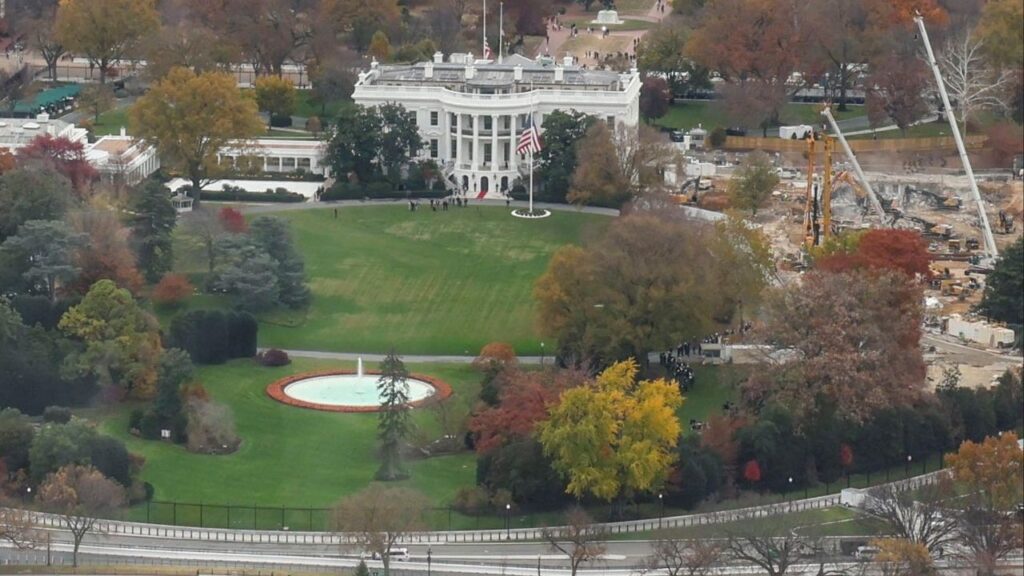A state appellate court heard arguments for and against Assemblymember Vince Fong, R-Bakersfield, remaining on the November congressional ballot. (GV Wire Composite/Paul Marshall)

- Bakersfield's Vince Fong is running for Congress and Assembly in November.
- The Secretary of State is challenging, citing election law that a candidate can only run for one office at a time.
- The state's Third Court of Appeal heard arguments Thursday in Sacramento.
Share
|
Getting your Trinity Audio player ready...
|
Vince Fong is on the November ballot for Congressional District 20 — representing parts of Fresno and Clovis — for now. But, his status to remain on the ballot is pending an appeal court decision.
Fong, R-Bakersfield, is running for both Congress and Assembly in November. He advanced in the March 5 primary, running for both positions. Running for two offices in the same election has largely been barred by state law.
Secretary of State Shirley Weber challenged Fong’s presence for both on the March 5 primary ballot. A Sacramento Superior Court judge ruled in Fong’s favor.
Weber appealed, and the Third District Court of Appeal in Sacramento heard arguments on Thursday about whether Fong should stay or not.
Whatever the final ruling, Fong remains on the ballot for the May 21 special election to fill the remainder of the Congressional District 20 term.
Fong faces Tulare County Sheriff Mike Boudreaux, R-Springville, both May 21 and Nov. 5. Ken Weir, a Republican Bakersfield city councilmember, qualified to run for Assembly against Fong, through the write-in process. Fong has endorsed Weir.
Listen to the Entire Court Hearing
Audio courtesy of the Court of Appeal, Third Appellate District.
Interpreting the Election Code
The case boils down to the interpretation of Election Code 8003(b) — enacted into state law in 1913:
No person may file nomination papers for a party nomination and an independent nomination for the same office, or for more than one office at the same election.
State attorney Seth Goldstein argued that the trial court erred in its ruling, overlooking a century of precedent. Each side was granted 30 minutes to make its argument.
“(The) statutes should be read in a way to avoid an absurd result. And reading section 8003(b) as to only apply to independent nominees is such an absurd result,” he told the three-justice panel.
“There doesn’t have to be a law precluding dual candidacy or multiple candidacies. It would be mayhem,” Associate Justice Peter Krause said. “It would be a really unpleasant election process. But it could be legal. And, if through oversight or poor drafting, there is no prohibition on it. It isn’t necessarily absurd. It’s potentially unmanageable. But I don’t know if it’s absurd in the sense of the case law talks about absurd results.”
Goldstein argued that if the law was ambiguous, deference should be given to the Secretary of State’s interpretation.
Remedies, Goldstein advocated, include removing Fong from the ballot, ordering a new election, or allowing for other “post-election remedy.”
Associate Justice Stacy Boulware Eurie asked if ineligibility was an issue in this case.
“I think Mr. Fong would be ineligible for the same reason that he would be ineligible if he failed to file his nomination papers on time, or if he failed to pay his filing fee or failed to submit the signatures that he was required to under law. I think these are basic statutory filing requirements. And if a candidate doesn’t comply with them, I think they are ineligible,” Goldstein responded.
Fong — who filed to run for Assembly in December — filed on the last day to run for Congress. Former Speaker of the House Kevin McCarthy, R-Bakersfield, made a late decision not to run. He quit the seat altogether on Dec. 31, necessitating a special election.
Weber allowed Fong to remain on the ballot, given the late nature of his filing, only to challenge it later. Krause questioned Goldstein on the timing, saying Weber could have decided at that time.
Goldstein said any delay at the time might cause ballot printing problems.
“I do think that there are real harms here in allowing a candidate to run for multiple offices. I do think voter confusion is an issue. I think that it also could result in freezing out other candidates,” Goldstein said in conclusion.
Fong Attorney: Election Law Doesn’t Apply
Brian Hildreth, representing Fong, said the interpretation of 8003(b) should have changed when California adopted its top-two primary system.
“It’s OK to run for multiple offices in the primaries because the voters get to vet you there. And that that narrows the focus. It narrows the election for the general election,” Hildreth said.
Hildreth said there were several instances of a candidate running for more than one office in the March 5 election. For example, Carlos Dammier ran for judge in Merced and San Bernardino counties. He lost in both races.
“If we are truly concerned about somebody’s name appearing twice on the ballot, the state Legislature could fix that with one sentence,” Hildreth said.
Hildreth further argued that if the concern was one person holding more than two elected offices simultaneously, several candidates holding one office while running for another would have to be disqualified. One example was state Sen. Melissa Hurtado, D-Bakersfield, running for Congress (she lost in the primary).
“If it truly is a problem, then we should address it,” Hildreth said.
The justices asked about the Secretary of State’s proposed judicial remedies. Weber has asked for a ruling by April 12, the date she must certify the election.
“The Separation of Powers doctrine attaches. And if you look at the Supreme Court cases,” Hildreth argued, “it suggests that that state rules cannot frustrate the power of the legislature to determine the election or qualifications of its members.”
Any judicial change would also “frustrate” the voters, he said.
“Once a legislative candidate appears on the ballot, the power of the state is diminished in favor of the power of the particular legislative body that this race is supposed to fill,” Hildreth said.
Hildreth closed by arguing that the interpretation of any ambiguous election law should be ruled in favor of the candidate and voters.
The justices, led by Administrative Presiding Judge Laurie Earl, will now deliberate. There is no timetable when a decision comes down. The ruling could be appealed to the state Supreme Court.
Goldstein said there are three bills that would clarify the rules for a candidate running for more than one office. Assembly Bill 1784, for example, would allow candidates to withdraw from an office after they file.
RELATED TOPICS:
Categories

US Sub Sinks Iranian Warship off Sri Lanka, at Least 80 Dead



















